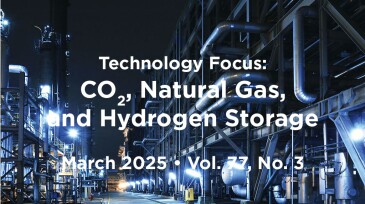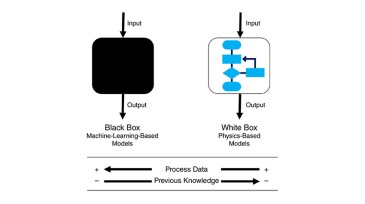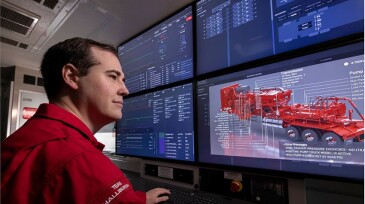AI/machine learning
This paper introduces an agentic artificial-intelligence framework designed for offshore production surveillance and intervention.
In the past year, publications on CO2, natural gas, and hydrogen storage have increasingly focused on the design, evaluation, and optimization of storage plans. These efforts encompass a broad spectrum of challenges and innovations, including the expansion of storage reservoirs from depleted gas fields and saline aquifers to stratified carbonate formations and heavy-o…
Reaching further than dashboards and data lakes, the agentic oil field envisions artificial intelligence systems that reason, act, and optimize.
-
Data quality and mission clarity matter more than ever, according to experts speaking at this year’s International Petroleum Technology Conference in Kuala Lumpur.
-
The massive system brings advanced capabilities for simulation, AI, and data analysis to drive breakthroughs in cancer research, materials discovery, energy technologies, and many other fields.
-
The new burner, created with the help of machine learning and additive manufacturing, promises high methane destruction efficiency and combustion stability even in windy conditions.
-
Transitioning to a low-carbon economy demands large-scale CO2, natural gas, and hydrogen storage. In this context, the application of AI/ML technology to uncover geochemical, microbial, geomechanical, and hydraulic mechanisms related to storage and solve complicated history-matching and optimization problems, thereby enhancing storage efficiency, has been prominently …
-
The authors propose a hybrid virtual flow and pressure metering algorithm that merges physics-based and machine-learning models for enhanced data collection.
-
The service giant shares new details about its automated fracturing spreads that slash human operator workload by 88%.
-
The trial phase of the agentic program used AI agents and combined large-language-model technology with data collected from more than 15% of ADNOC’s onshore and offshore wells.
-
SLB said it plans to integrate INT’s technology into its digital data and artificial intelligence platforms.
-
Chevron’s announcement comes on the heels of ExxonMobil’s announcement in December of a similar project to deliver natural gas-fueled electricity to US data centers.
-
These papers provided insights and advances into field-operations automation, machine-learning-assisted petrophysical characterization, and fluid-distribution analysis in unconventional assets.













